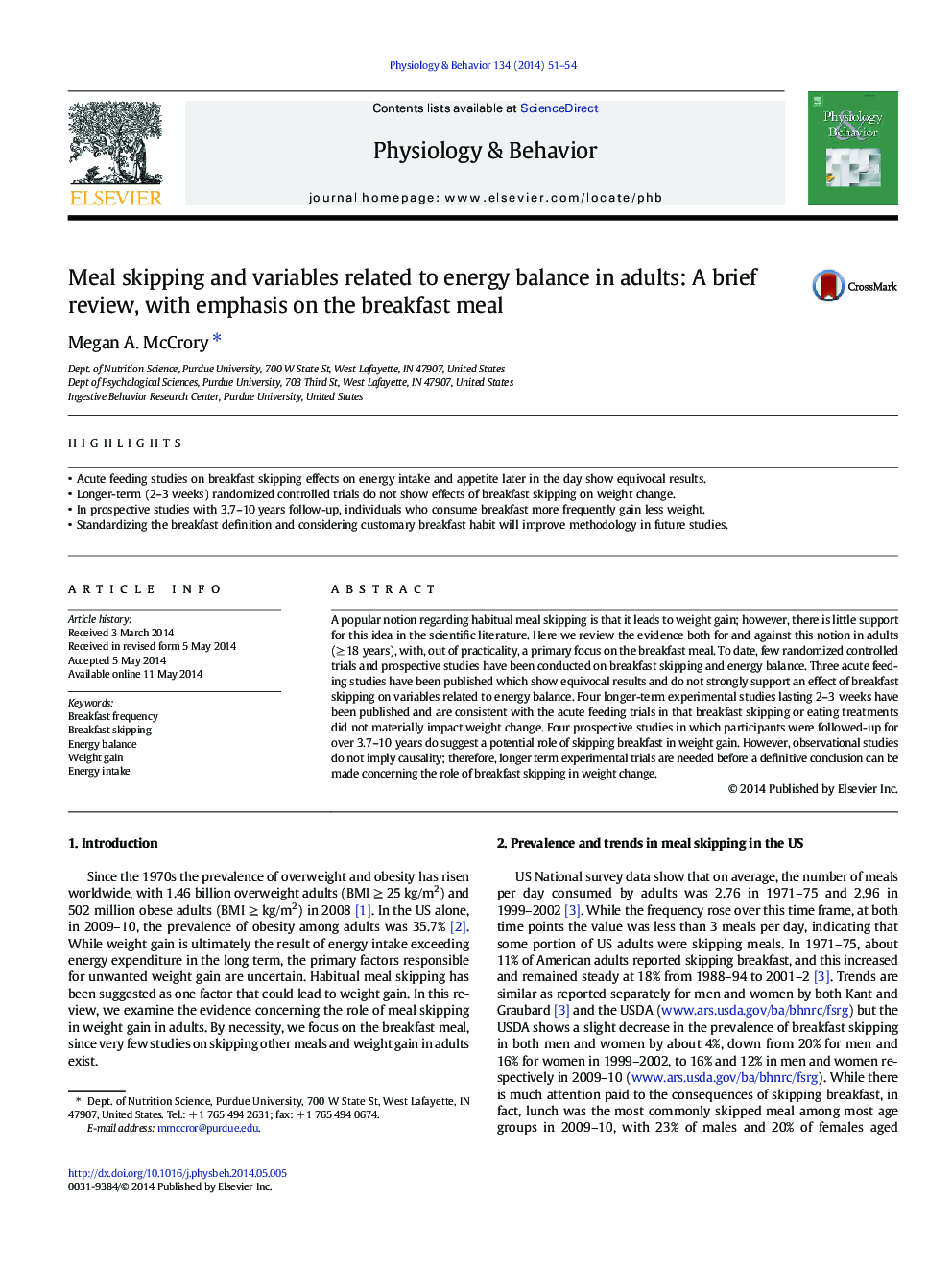| Article ID | Journal | Published Year | Pages | File Type |
|---|---|---|---|---|
| 2844169 | Physiology & Behavior | 2014 | 4 Pages |
•Acute feeding studies on breakfast skipping effects on energy intake and appetite later in the day show equivocal results.•Longer-term (2–3 weeks) randomized controlled trials do not show effects of breakfast skipping on weight change.•In prospective studies with 3.7–10 years follow-up, individuals who consume breakfast more frequently gain less weight.•Standardizing the breakfast definition and considering customary breakfast habit will improve methodology in future studies.
A popular notion regarding habitual meal skipping is that it leads to weight gain; however, there is little support for this idea in the scientific literature. Here we review the evidence both for and against this notion in adults (≥ 18 years), with, out of practicality, a primary focus on the breakfast meal. To date, few randomized controlled trials and prospective studies have been conducted on breakfast skipping and energy balance. Three acute feeding studies have been published which show equivocal results and do not strongly support an effect of breakfast skipping on variables related to energy balance. Four longer-term experimental studies lasting 2–3 weeks have been published and are consistent with the acute feeding trials in that breakfast skipping or eating treatments did not materially impact weight change. Four prospective studies in which participants were followed-up for over 3.7–10 years do suggest a potential role of skipping breakfast in weight gain. However, observational studies do not imply causality; therefore, longer term experimental trials are needed before a definitive conclusion can be made concerning the role of breakfast skipping in weight change.
